NHS braced for surge in patients as ‘danger to life’ heatwave warning comes into force
The UK Health Security Agency has described the heatwave as a ‘national emergency’
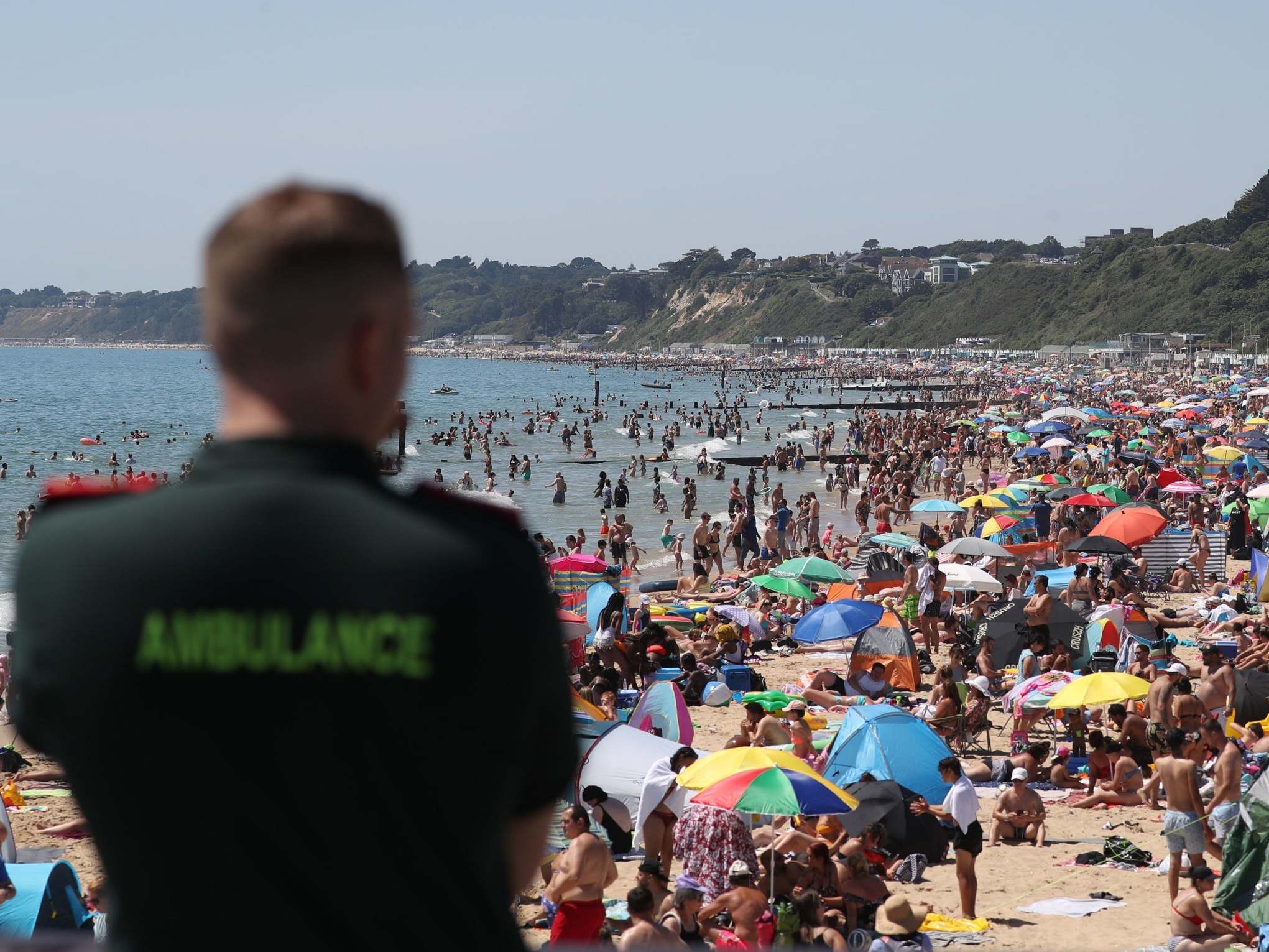
Your support helps us to tell the story
From reproductive rights to climate change to Big Tech, The Independent is on the ground when the story is developing. Whether it's investigating the financials of Elon Musk's pro-Trump PAC or producing our latest documentary, 'The A Word', which shines a light on the American women fighting for reproductive rights, we know how important it is to parse out the facts from the messaging.
At such a critical moment in US history, we need reporters on the ground. Your donation allows us to keep sending journalists to speak to both sides of the story.
The Independent is trusted by Americans across the entire political spectrum. And unlike many other quality news outlets, we choose not to lock Americans out of our reporting and analysis with paywalls. We believe quality journalism should be available to everyone, paid for by those who can afford it.
Your support makes all the difference.The NHS is bracing itself for a surge in the numbers of people admitted to hospital as the heatwave which is forecast to bring record temperature to the UK grips the country.
Extra measures are being enforced for ambulance services after the Met Office issued amber and red alerts.
The Met Office has issued the UK’s first ever red alert across a large part of England – from London to Manchester and York – as record-breaking temperatures are forecast for early next week.
On Sunday, an amber warning initially covering the whole of England came into force. It will be extended to Wales and southern parts of Scotland on Monday and Tuesday.
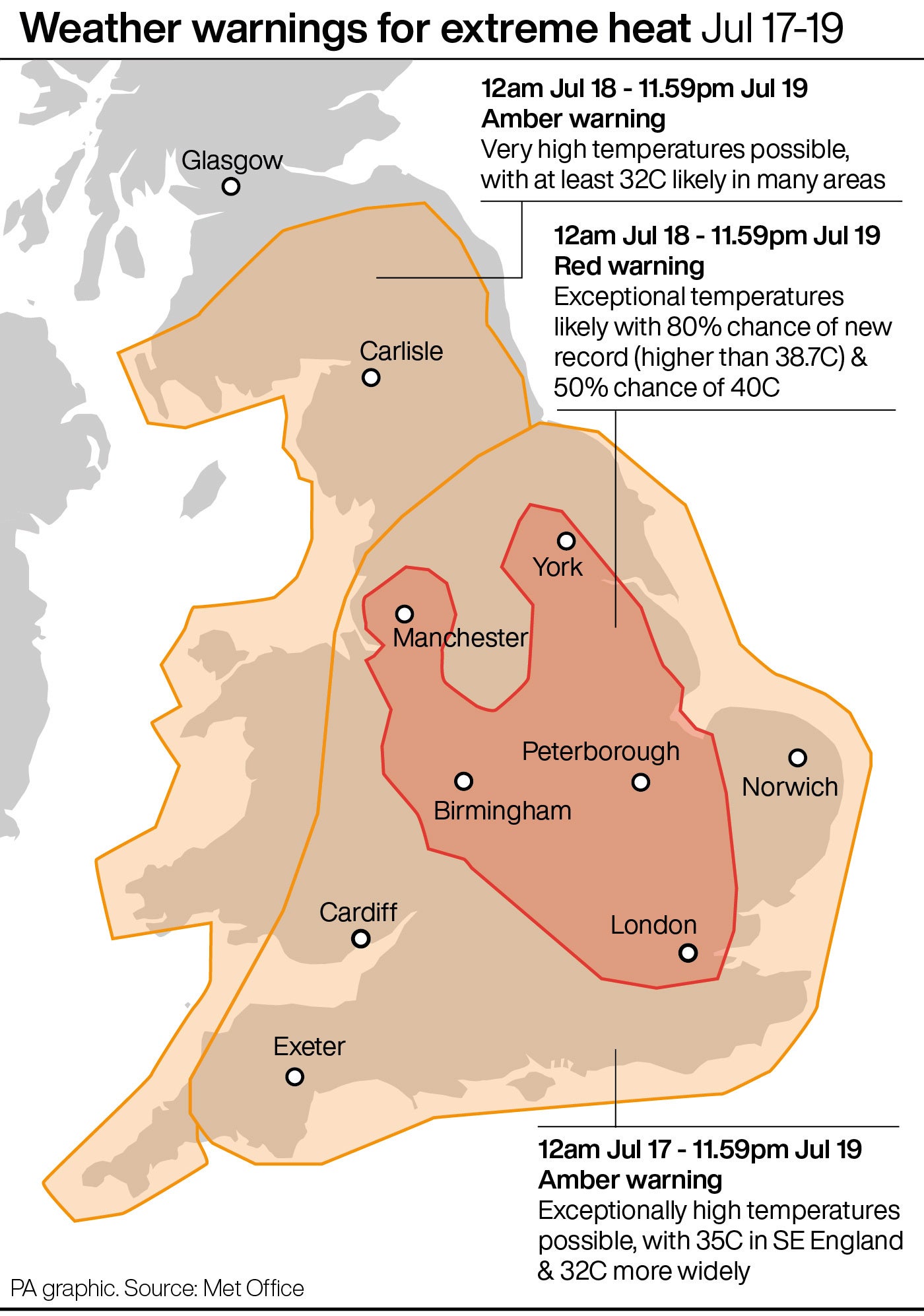
The UK Health Security Agency has increased its heat health warning from level three to level four, which it said indicates a “national emergency” – a first for the UK.
Level four “is reached when a heatwave is so severe and/or prolonged that its effects extend outside the health and social care system, such as power or water shortages, and/or where the integrity of health and social care systems is threatened,” the government said.
It is introduced when “a very severe heatwave which will last for a considerable period of time and will also affect transport, food, water, energy supplies, businesses and health and social care services”.
New health secretary Steve Barclay said more call handlers and extra working hours are part of the additional contingency support for ambulance services.
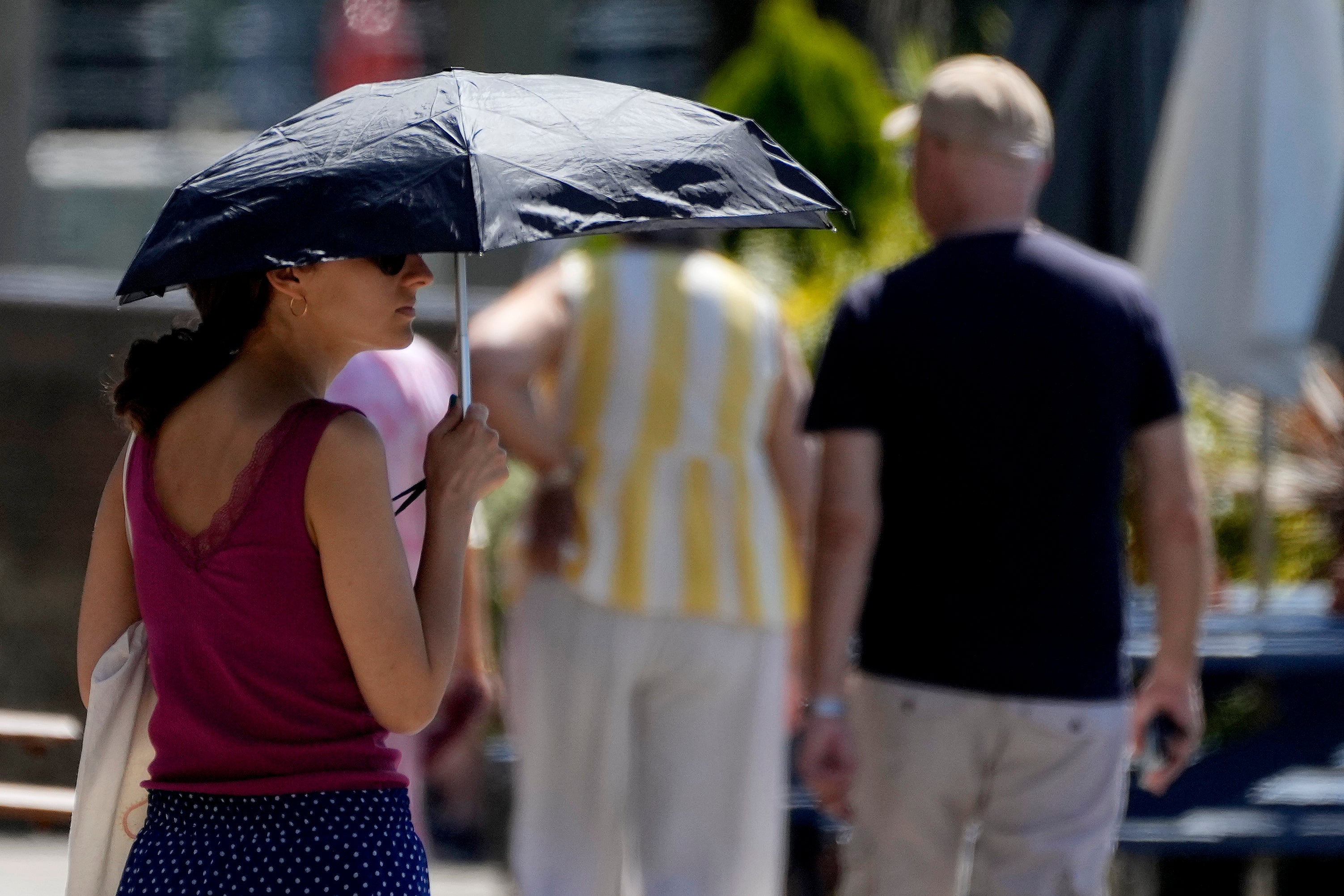
Mr Barclay told the BBC: “We’re putting in extra measures in terms of call handlers, support for fleet [and] extra hours of capacity within the ambulances.
“Each ambulance trust has well-developed contingency plans for extreme weather.
“We’re also working with the hospitals to get the handovers from ambulances into hospitals, but also to ensure that where people can be moved on to the wards themselves, we’re using the full capability of the hospital rather than people waiting longer than they need to in ambulances outside.”
The government is also advising that people seek shade and drink enough water, as well as “keep an eye out for their neighbours and those who may be vulnerable,” Mr Barclay also said.
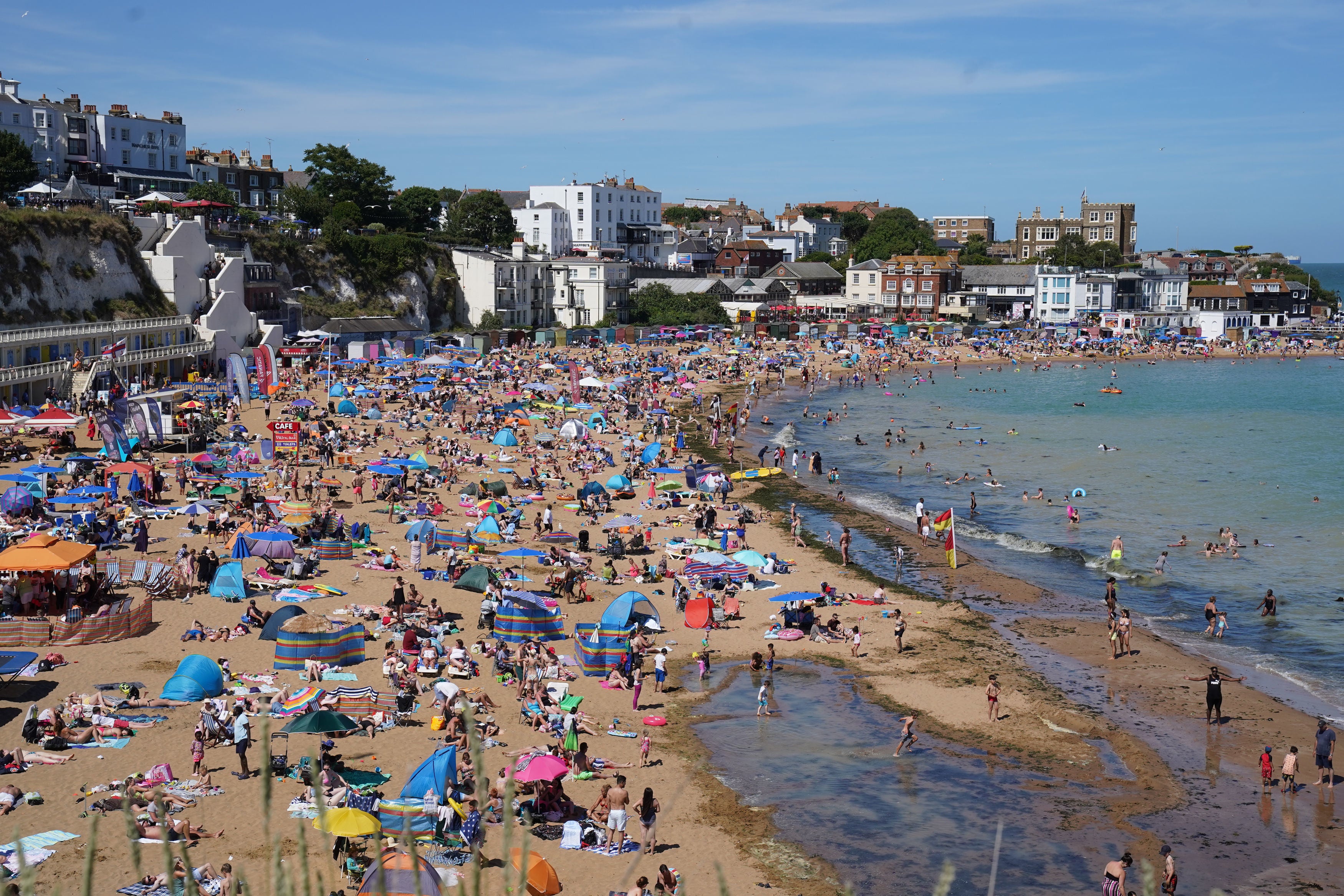
The chief executive of the College of Paramedics has warned that the “ferocious heat” the UK is predicted to experience over the next few days could result in people dying.
Tracy Nicholls told Sky News’s Sophy Ridge On Sunday programme: “This isn’t like a lovely hot day where we can put a bit of sunscreen on, go out and enjoy a swim and a meal outside.
“This is serious heat that could actually, ultimately, end in people’s deaths because it is so ferocious. We’re just not set up for that sort of heat in this country.”
There is an 80 per cent chance of temperatures exceeding the record of 38.7C, set in Cambridge in 2019, Met Office meteorologists have said.
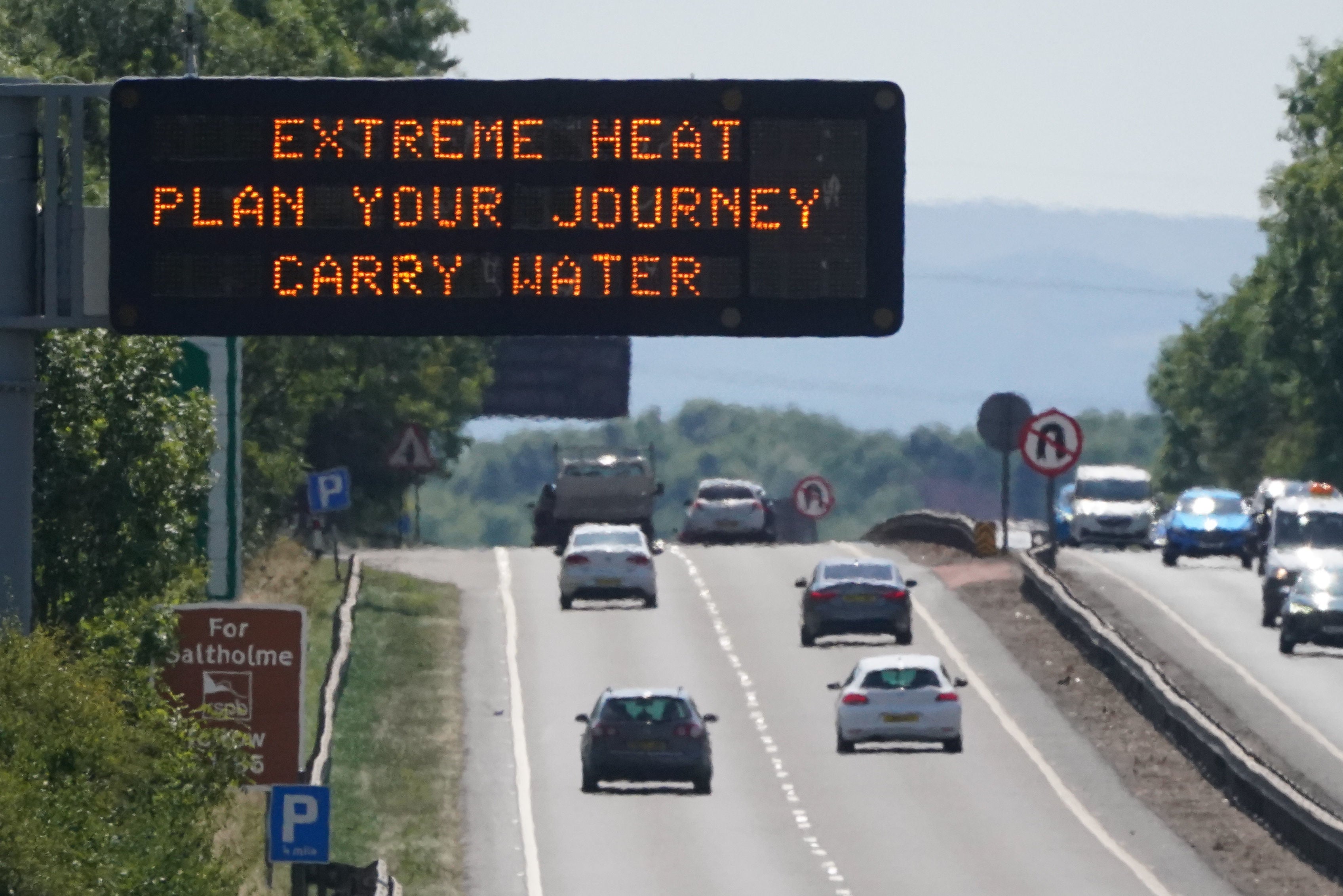
On Tuesday, parts of the Midlands and Yorkshire are forecast to see 42C temperatures.
London is expected to endure the heat of up 40C. Transport for London has advised people not to travel on trains and buses unless they have to.
On Monday, cities including Peterborough, Milton Keynes, Norwich and Lincoln are forecast to feel experience 37C heat.
Ministers held a virtual emergency Cobra meeting on Saturday after the meteorologists warned that the predicted record-high temperatures could put lives at risk.
Cabinet Office minister Kit Malthouse, who chaired the meeting, said transport services will face “significant disruption” on Monday and Tuesday and urged people not to travel.
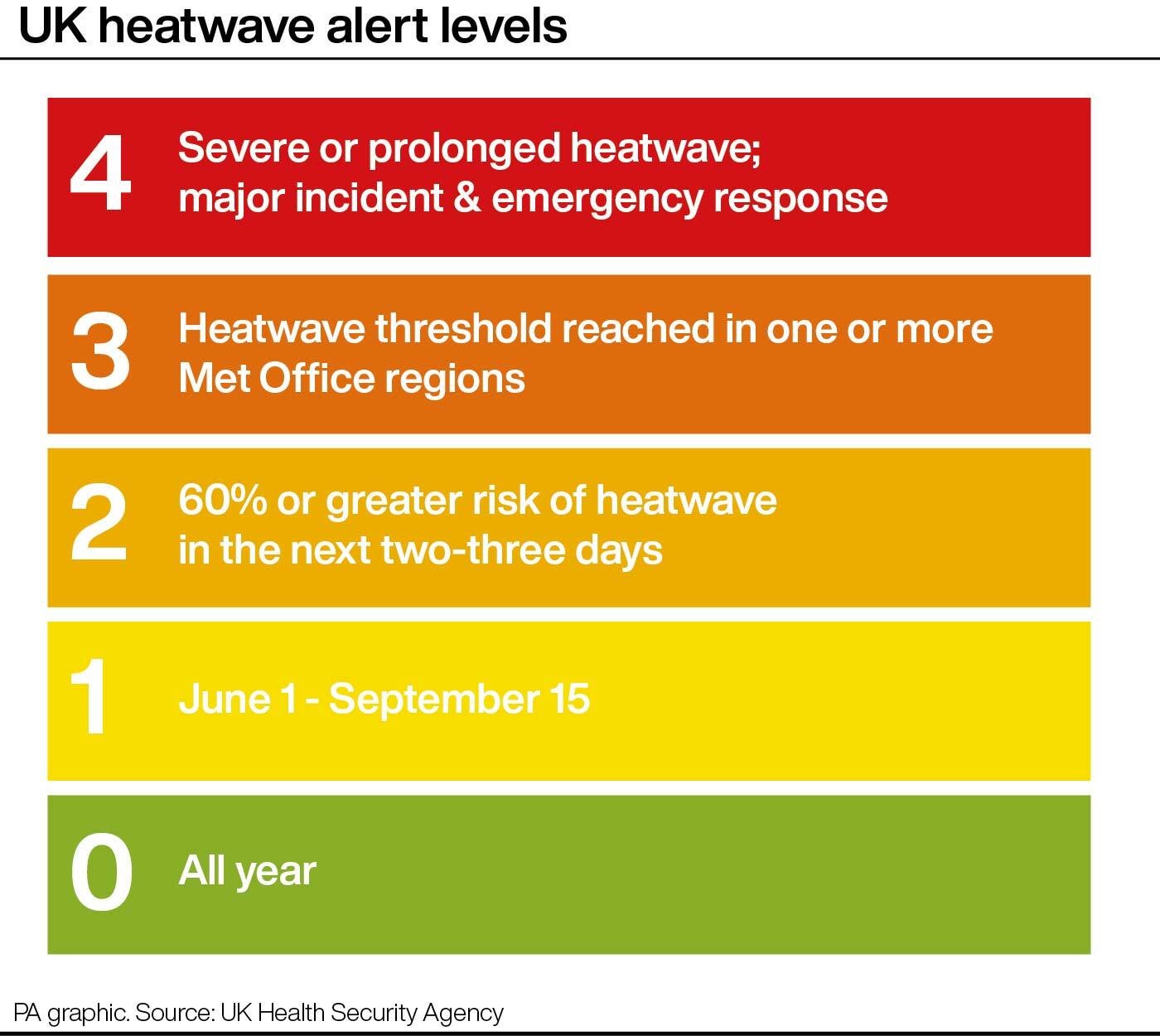
Schools were being issued guidance to enable them to remain open after a number of schools are reportedly planning to shut down until the weather cools, Mr Malthouse added.
Dr Nikos Christidis, a climate attribution scientist at the Met Office, has said the 40C prediction is a result of climate change.
“We hoped we wouldn’t get to this situation, but for the first time ever we are forecasting greater than 40C in the UK,” he said.
“In a recent study, we found that the likelihood of extremely hot days in the UK has been increasing and will continue to do so during the course of the century, with the most extreme temperatures expected to be observed in the southeast of England.”
For Sunday, the Met Office has forecast dry weather in Wales, the Midlands, the southeast and southwest of England as temperatures rise up to 31C.
The north of England and Scotland are predicted to have warm cloudy weather with some possible showers. Highs of 25C are predicted in the northwest of England, while the North East and most of Scotland could see highs of 23C.
Subscribe to Independent Premium to bookmark this article
Want to bookmark your favourite articles and stories to read or reference later? Start your Independent Premium subscription today.




Join our commenting forum
Join thought-provoking conversations, follow other Independent readers and see their replies
Comments